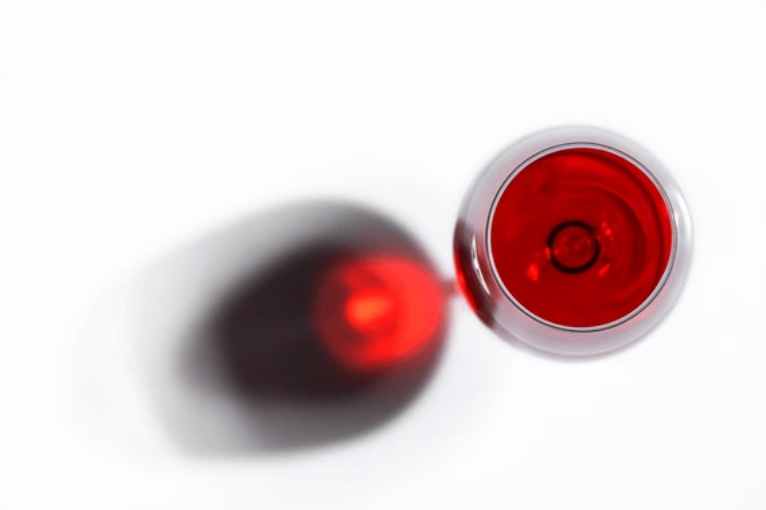Berberine and Alcohol: Evaluating Benefits and Risks for Your Health

Curious if taking Berberine with alcohol is safe? This article dives into how berberine interacts with alcohol, exploring its potential benefits and risks. Discover whether Berberine alcohol can mitigate alcohol’s harmful effects and learn practical tips for safe usage.
Key Takeaways
-
Berberine shows potential protective effects against alcohol-induced damage, particularly in the gastrointestinal tract and liver, due to its antioxidant and anti-inflammatory properties.
-
Clinical evidence, including randomised controlled trials and meta-analyses, supports berberine’s efficacy in lowering liver enzyme levels and improving liver function among individuals with alcohol-related liver damage.
-
For optimal benefits, berberine should be taken one hour prior to alcohol consumption, and it can be combined with other supplements like milk thistle and antioxidants to enhance its protective effects.
Berberine and Alcohol: An Overview

Berberine, a bioactive compound extracted from various plants, has been traditionally used in traditional Chinese medicine to treat a wide range of conditions, including gastrointestinal and metabolic disorders. Available in different forms, such as berberine hydrochloride and berberine chloride, this compound has garnered attention for its potential health benefits and relatively safe profile for short-term use.
When it comes to alcohol, the conversation becomes particularly intriguing. Alcohol consumption, especially in excess, is known to cause significant harm to the body, affecting everything from the liver to the gastrointestinal tract. This is where berberine’s potential protective effects come into play. Leveraging its antioxidant and anti-inflammatory properties, berberine may shield against the detrimental impacts of alcohol.
Understanding the interaction between berberine and alcohol helps mitigate alcohol’s adverse effects while reaping the benefits of berberine supplementation. This overview sets the stage for a deeper dive into berberine’s protective effects, mechanisms of action, clinical evidence, and practical usage tips.
Protective Effects of Berberine on Alcohol-Induced Damage
Berberine’s potential to shield the body from alcohol-induced damage is supported by its antioxidant and anti-inflammatory properties. These protective effects extend to both the gastrointestinal tract and the liver, two critical areas often compromised by alcohol consumption.
These protective mechanisms warrant a closer examination.
Gastrointestinal Mucosa Protection
The gastrointestinal mucosa is particularly vulnerable to alcohol-induced damage, but berberine offers a protective shield by regulating inflammatory cytokines and targeting TLR signaling pathways. One of the key mechanisms involves the inhibition of pro-inflammatory cytokines such as TNF and IL-1, which are commonly elevated due to alcohol exposure. Suppressing the expression of receptors TLR2 and TLR4, berberine further mitigates alcohol-induced inflammation.
But the benefits don’t stop there. Berberine also enhances the production of short-chain fatty acids (SCFAs) from gut bacteria, which play a crucial role in maintaining the integrity of the intestinal barrier. This is particularly important as alcohol can compromise this barrier, leading to increased intestinal permeability.
Moreover, berberine’s ability to alter the composition of gut microbiota by promoting beneficial bacteria adds another layer of protection. Overall, berberine reduces alcohol-induced damage to the gastrointestinal lining by regulating inflammation and maintaining intestinal barrier integrity.
Liver Function and Alcoholic Liver Disease

The liver, often the hardest hit by alcohol, benefits significantly from berberine’s protective properties. Research indicates that berberine can improve liver function by reducing oxidative stress, a major player in alcoholic liver disease. This reduction in oxidative stress is crucial for minimising the cellular damage caused by alcohol.
Berberine has shown potential benefits for liver health, including:
-
Reducing inflammation in the liver, which is vital for managing alcoholic liver disease.
-
Lowering liver enzyme levels associated with alcohol-induced liver damage, offering a promising therapeutic avenue.
-
Not elevating liver enzymes, suggesting it is safe for liver function during alcohol consumption.
Influencing multiple cellular pathways, including the AMPK signaling pathway, berberine helps regulate metabolic processes affected by alcohol. A meta-analysis has confirmed berberine’s efficacy in mitigating alcohol-induced oxidative stress in the liver, reinforcing its protective role.
Mechanisms of Action: How Berberine Works Against Alcohol Damage
Understanding the mechanisms through which berberine counteracts alcohol damage is key to appreciating its protective effects. Berberine influences various signaling pathways and cellular processes to mitigate the harmful impacts of alcohol on the body.
Examining the specifics of these mechanisms reveals the effect of berberine on protective effects.
Inflammatory Cytokines and TLR Signaling
One of the primary ways berberine combats alcohol-induced damage is by inhibiting the expression of pro-inflammatory cytokines, which are often elevated due to alcohol consumption. Research shows that berberine can decrease the levels of inflammatory cytokines such as TNF-α and IL-6, which are key players in alcohol-induced inflammation.
Berberine’s action on TLR signaling further helps reduce inflammation associated with alcohol-related damage. By targeting TLR pathways, berberine mitigates the inflammatory responses triggered by alcohol intake.
Overall, berberine aids in reducing inflammation caused by alcohol by addressing both pro-inflammatory cytokines and TLR signaling pathways, offering a comprehensive anti inflammatory effects.
Intestinal Barrier and Gut Microbiota
Alcohol intake often compromises the integrity of the intestinal barrier, allowing harmful substances to enter the bloodstream. Berberine enhances the intestinal barrier function, preventing alcohol from exacerbating gut permeability. This is crucial for maintaining overall gastrointestinal health.
Furthermore, berberine’s modulation of gut microbiota plays a significant role in alleviating alcohol-induced gastrointestinal issues. By promoting a healthy balance of gut bacteria, berberine helps counteract the harmful effects of alcohol on the gut.
Overall, berberine strengthens the intestinal barrier and improves gut microbiota, thus playing a pivotal role in maintaining gastrointestinal health in the context of alcohol consumption.
Clinical Evidence and Studies

The potential benefits of berberine in counteracting alcohol-induced damage are backed by a growing body of clinical evidence, including studies published in Alcohol Clin Exp Res.
This section will review the findings from randomised controlled trials and meta-analyses that highlight berberine’s clinical efficacy and therapeutic potential; the results revealed the significant impact of these studies.
Randomised Controlled Trials
Randomised controlled trials provide robust evidence of berberine’s efficacy in protecting against alcohol-induced liver damage. A total of 10 RCTs involving 811 patients indicated that berberine significantly lowered levels of alanine transaminase (ALT), aspartate transaminase (AST), and glutamyl transpeptidase (GGT) in individuals with liver damage.
These studies also found that berberine supplementation can improve liver function markers among individuals with alcoholic liver disease. In addition to reducing inflammation markers, berberine has shown effectiveness in mitigating liver enzyme levels elevated due to alcohol.
The collective evidence from these RCTs suggests that berberine may provide significant protective effects against alcohol-related liver damage, improving both liver enzyme levels and inflammation markers.
Meta-Analyses and Systematic Reviews
Meta-analyses offer a comprehensive overview of berberine’s protective effects against alcohol-induced liver damage. These studies confirm berberine’s potential therapeutic benefits by consolidating findings from multiple trials. Meta-analyses have shown that berberine can positively influence liver health by reducing enzyme levels elevated due to alcohol consumption.
These reviews highlight berberine’s efficacy in mitigating alcohol-induced liver damage by providing a broad perspective. Overall, systematic reviews and meta-analyses offer compelling evidence of berberine’s therapeutic benefits, reinforcing its role in protecting against alcohol-related health issues.
Dosage and Safety Considerations
When considering berberine supplementation, it’s crucial to understand the appropriate dosages and safety precautions. This section will outline the recommended dosages and potential side effects to ensure safe and effective use.
Recommended Dosages
Berberine administration can be safely used in doses ranging from 0.4 to 1.5 grams daily for adults. The highest recommended dosage for adults is 1.5 grams daily for a duration of six months. This dosage range has been shown to be effective in various studies.
Research shows berberine has been effectively used for up to two years, providing a long history of safety for this supplement. However, it’s always advisable to consult with a healthcare provider before starting any new supplement regimen.
Adhering to these recommended high doses allows individuals to safely leverage berberine’s benefits while minimising adverse effects.
Side Effects and Interactions
Common adverse effects associated with berberine use include gastrointestinal issues such as diarrhea, constipation, and stomach upset. These side effects are generally mild and can often be managed by adjusting the dosage.
However, it’s important to be aware of potential drug interactions. Combining berberine with antihypertensive drugs may lead to dangerously low blood pressure. Additionally, berberine lowers blood sugar levels, risking hypoglycemia when taken with diabetes medications.
Berberine can also interact with medications processed by the liver, potentially altering their effectiveness. Pregnant or breastfeeding women should avoid berberine, as it can cross the placenta and affect the fetus. Consulting a healthcare provider before combining berberine with other drugs or supplements ensures safety.
Practical Tips for Using Berberine with Alcohol
For those considering berberine supplementation in the context of alcohol consumption, practical tips can help maximize benefits and minimize risks.
Guidance on timing and combining berberine with other supplements follows below.
Timing and Administration
The timing of berberine intake is crucial for optimizing its protective effects. Taking berberine approximately one hour before consuming alcohol can help maximize its benefits. This timing allows berberine to be absorbed and start exerting its protective effects before alcohol enters the system.
Taking berberine at least one hour before alcohol consumption enhances its effectiveness in mitigating alcohol-induced damage. This simple adjustment can make a significant difference in the overall protective benefits of berberine.
Proper timing ensures that berberine is at its most effective when the body needs it most, providing a strategic advantage in combating alcohol’s harmful effects.
Combining with Other Supplements
Combining berberine with certain supplements can enhance its protective effects against alcohol-induced damage. Supplements like milk thistle are known for their liver-protective properties and can be paired with berberine to potentially enhance liver protection from alcohol-related damage.
Antioxidants such as vitamin C and E may also complement berberine’s protective effects when consuming alcohol. These antioxidants help reduce oxidative stress, further safeguarding the liver and other organs.
Additionally, combining berberine with supplements like vitamin D3 and turmeric can enhance its protective effects against alcohol-related damage. Strategically combining supplements allows individuals to optimize overall health and resilience against alcohol’s harmful effects.
Summary
In summary, berberine offers promising protective effects against alcohol-induced damage, particularly in the gastrointestinal tract and liver. Its antioxidant and anti-inflammatory properties help mitigate the adverse impacts of alcohol consumption by regulating inflammatory cytokines, enhancing the intestinal barrier, and improving liver function. Clinical evidence, including randomized controlled trials and meta-analyses, supports berberine’s efficacy in reducing liver enzyme levels and inflammation markers associated with alcohol-related damage.
When considering berberine supplementation, it’s important to follow recommended dosages and be aware of potential side effects and drug interactions. Practical tips, such as timing berberine intake and combining it with other supplements, can help maximize its benefits while minimizing risks.
Ultimately, berberine holds significant potential as a protective agent against alcohol-induced damage. By understanding its mechanisms of action and following best practices for supplementation, individuals can harness the benefits of berberine to support their health and well-being.
Frequently Asked Questions
What is berberine, and how is it used?
Berberine is a bioactive compound from various plants, commonly used in Eastern medicine for gastrointestinal and metabolic disorders. It is typically available in forms like berberine hydrochloride and berberine chloride.
How does berberine protect against alcohol-induced damage?
Berberine protects against alcohol-induced damage by displaying antioxidant and anti-inflammatory properties, regulating inflammatory cytokines, enhancing the intestinal barrier, and improving liver function. This multifaceted approach helps mitigate the harmful effects of alcohol consumption.
What are the recommended dosages for berberine?
The recommended dosage for berberine is between 0.4 to 1.5 grams daily, with a maximum of 1.5 grams for up to six months. Always consult your healthcare provider before starting supplementation.
Are there any side effects or interactions to be aware of?
Yes, berberine can cause gastrointestinal issues like diarrhea and constipation, and it may interact with antihypertensive and diabetes medications, affecting their effectiveness. Pregnant or breastfeeding women should avoid it.
How should berberine be taken in relation to alcohol consumption?
Berberine should be taken about one hour before consuming alcohol to maximize its protective effects. This timing allows it to be absorbed effectively before alcohol enters your system.
Researched and reviewed by Dr Elena Seranova, Ph.D.
Dr Seranova holds a master's degree in Translational Neuroscience from the University of Sheffield, UK, and a Ph.D in Stem Cell Biology and Autophagy from the University of Birmingham, UK. She is a published author in multiple peer-reviewed journals, including Cell Reports and Developmental Cell.
LEARN MORE!
-
Understanding the Benefits and Uses of Berberine: A Comprehensive Review
- Can Berberine Help with Weight Loss?






Leave a comment